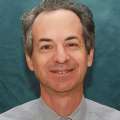Researchers at the have received more than $6.9 million in grants from the California Institute for Regenerative Medicine, the state’s stem cell agency, to help develop new stem cell-based technologies to improve patient care.

The Quest Awards, given to Dr. Gerald Lipshutz, professor-in-residence of surgery and molecular and medical pharmacology at the ; Song Li, chancellor’s professor and chair of bioengineering at the ; and Dr. Frank Pajonk, professor of radiation oncology at the David Geffen School of Medicine at UCLA, were announced at a CIRM meeting today.
Gene therapy for creatine transporter disorder
Lipshutz’s $2.3 million award will fund his work to develop a one-time gene therapy to treat creatine transporter deficiency, which inhibits creatine—a molecule that is an essential energy source for brain and muscle cells—from reaching the brain and muscles and causes neural dysfunction. The focus of the project is on mutations of the SLC6A8 creatine transporter gene, which is a major cause of X-linked intellectual disability that primarily affects boys and is commonly associated with global developmental delay, lack or delay of speech, autism and seizures. There are no effective treatments for this genetic condition to date. Lipshutz and his team aim to produce a gene delivery platform and approach that helps restore function to creatine transporter SLC6A8 in the brain, which will in turn reinstate creatine uptake to cells and improve brain function.
Vaccine booster for cancer therapy
Li’s award of $2.3 million will support his efforts to create an affordable drug delivery system that can be used to treat and prevent the recurrence of tumors, particularly melanoma, the most serious type of skin cancer. He aims to develop an injectable personalized cancer vaccine booster that can induce cancer-specific killer T memory stem cells within a patient’s body and boost the long-term immunity against solid tumors. If shown to be safe and effective for melanoma in a future clinical trial, the proposed immunotherapy could pave the way for the next generation of cancer vaccines that are engineered to prevent cancer recurrence, a medical challenge that cannot be effectively addressed through current treatments such as surgical tumor removal, radiation and chemotherapy. Collaborators include Mahdi Hasani, Dr. Manish Butte and Xia Yang.
Drug candidate for brain cancer glioblastoma
Pajonk’s $2.3 million award will fund his work to develop, test and optimize novel compounds that can be combined with radiation therapy to increase its efficacy against glioblastoma, the deadliest brain cancer in adults. The median life expectancy of patients after a diagnosis is between 15 and 18 months. Since glioblastoma cells make their way into healthy brain tissue widely and erratically, the cancer can be challenging to remove through surgery. By developing and analyzing novel small molecules designed to not only target existing cancer initiating cells but also prevent cancer cells from changing to evade the effects of radiation therapy, Pajonk and his collaborators, Dr. Harley Kornblum and Michael Jung, aim to improve radiation treatment outcome for this aggressive brain tumor and reduce cancer recurrence.
The technologies and compounds developed by Lipshutz, Li, and Pajonk are in the early stages of development and have not been tested in humans or approved by the Food and Drug Administration as safe and effective for use in humans.






